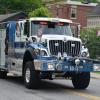Sign in to follow this
Followers
0

REMEMBERING THE WORCESTER 6: Worcester Cold and Storage Warehouse Fire December 3, 1999
Started by
markmets415,
7 posts in this topic

This topic is now closed to further replies.
Sign in to follow this
Followers
0
-
Recently Browsing 0 members
No registered users viewing this page.
